Related Research Articles

Cultural Christians are nonreligious persons who adhere to Christian values and appreciate Christian culture. As such, these individuals usually identify themselves as culturally Christians, and are often seen by practicing believers as nominal Christians. This kind of identification may be due to various factors, such as family background, personal experiences, and the social and cultural environment in which they grew up.

Alister Edgar McGrath is a Northern Irish theologian, Anglican priest, intellectual historian, scientist, Christian apologist, and public intellectual. He currently holds the Andreas Idreos Professorship in Science and Religion in the Faculty of Theology and Religion, and is a fellow of Harris Manchester College at the University of Oxford, and is Professor of Divinity at Gresham College. He was previously Professor of Theology, Ministry, and Education at King's College London and Head of the Centre for Theology, Religion and Culture, Professor of Historical Theology at the University of Oxford, and was principal of Wycliffe Hall, Oxford, until 2005.

The God Who Wasn't There is a 2005 independent documentary written and directed by Brian Flemming. The documentary questions the existence of Jesus, examining evidence that supports the Christ myth theory against the existence of a historical Jesus, as well as other aspects of Christianity.
Norman Leo Geisler was an American Christian systematic theologian, philosopher, and apologist. He was the co-founder of two non-denominational evangelical seminaries.
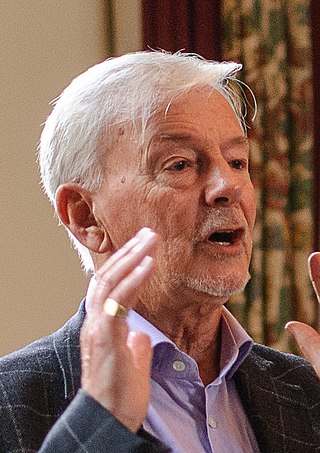
Keith Ward is an English philosopher and theologian. He is a fellow of the British Academy and a priest of the Church of England. He was a canon of Christ Church, Oxford, until 2003. Comparative theology and the relationship between science and religion are two of his main topics of interest.
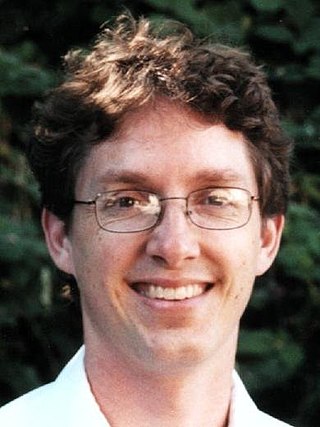
Richard Cevantis Carrier is an ancient historian. He is long-time contributor to skeptical websites, including The Secular Web and Freethought Blogs, Carrier has published a number of books and articles on philosophy and religion in classical antiquity, discussing the development of early Christianity from a skeptical viewpoint, and concerning religion and morality in the modern world. He has publicly debated a number of scholars on the historical basis of the Bible and Christianity. He is a prominent advocate of the theory that Jesus did not exist, which he has argued in a number of his works. Carrier's methodology and conclusions in this field have proven controversial and unconvincing to most ancient historians, and he and his theories are often identified as fringe.
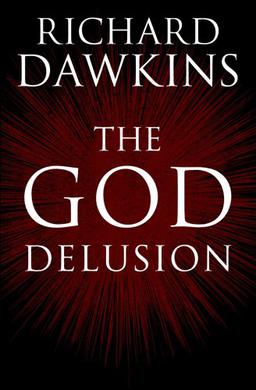
The God Delusion is a 2006 book by British evolutionary biologist and ethologist Richard Dawkins. In The God Delusion, Dawkins contends that a supernatural creator, God, almost certainly does not exist, and that belief in a personal god qualifies as a delusion, which he defines as a persistent false belief held in the face of strong contradictory evidence. He is sympathetic to Robert Pirsig's statement in Lila (1991) that "when one person suffers from a delusion it is called insanity. When many people suffer from a delusion it is called religion." In the book, Dawkins explores the relationship between religion and morality, providing examples that discuss the possibility of morality existing independently of religion and suggesting alternative explanations for the origins of both religion and morality.
Antony Loewenstein is an Australian-German freelance investigative journalist, author, and film-maker.
John Dickson is an Australian author, Anglican clergyman and historian of the ancient world, largely focusing on early Christianity and Judaism. He currently teaches at the graduate school of Wheaton College (Illinois).

The Veritas Forum is a non-profit organization which works with Christian students on college campuses to host forums centered on the exploration of truth and its relevancy in human life, through the questions of philosophy, religion, science, and other disciplines. The organization, named after the Latin word for truth, aims to "create university events engaging students and faculty in exploring life's hardest questions and the relevance of Jesus Christ to all of life." The first Veritas Forum was held at Harvard University in 1992. By 2008, 300,000 students had attended over 300 forums at 100 campuses across the US, Canada, France, England, and the Netherlands. In the 2010–2011 academic year, Veritas Forums were held at over 50 institutions of higher education. Veritas Forums are available for viewing online, and the organization has published several books with InterVarsity Press.
Christian atheism is a form of atheism that adopts the teachings, narratives, symbols, practices, or communities associated with Christianity without accepting the literal existence of God.

Atheism, agnosticism, scepticism, freethought, secular humanism or general irreligion are increasing in Australia. Post-war Australia has become a highly secularised country. Religion does not play a major role in the lives of much of the population.

Matthew Wade Dillahunty is an American atheist activist and former president of the Atheist Community of Austin, a position he held from 2006 to 2013. Between 2005 and October 2022, Dillahunty was host of the televised webcast The Atheist Experience.
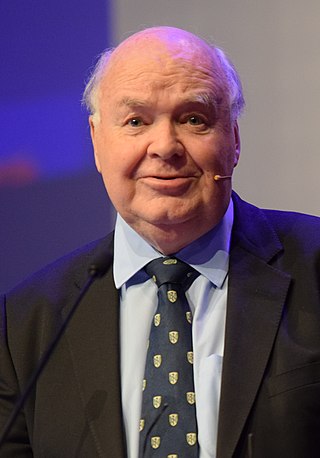
John Carson Lennox is an Irish mathematician, bioethicist, and Christian apologist. He has written many books on religion, ethics, the relationship between science and God, and has had public debates with atheists including Richard Dawkins and Christopher Hitchens.
The term New Atheism was coined by the American journalist Gary Wolf in 2006 to describe the positions of some atheist academics, writers, scientists, and philosophers of the 21st century. New Atheism advocates the view that superstition, religion, and irrationalism should not simply be tolerated. Instead, they should be criticised, countered, examined, and challenged by rational argument, especially when they exert strong influence on the broader society, such as in government, education, and politics. Major figures of New Atheism include Richard Dawkins, Sam Harris, Christopher Hitchens and Daniel Dennett, collectively referred to as the "four horsemen" of the movement, as well as Ayaan Hirsi Ali until her conversion to Christianity in 2023.
The secular movement refers to a social and political trend in the United States, beginning in the early years of the 20th century, with the founding of the American Association for the Advancement of Atheism in 1925 and the American Humanist Association in 1941, in which atheists, agnostics, secular humanists, freethinkers, and other nonreligious and nontheistic Americans have grown in both numbers and visibility. There has been a sharp increase in the number of Americans who identify as religiously unaffiliated, from under 10 percent in the 1990s to 20 percent in 2013. The trend is especially pronounced among young people, with about one in three Americans younger than 30 identifying as religiously unaffiliated, a figure that has nearly tripled since the 1990s.
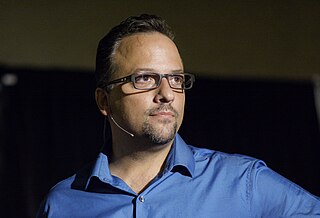
Seth Andrews is an American activist, author, and speaker on the subject of atheism. He is the creator and host of The Thinking Atheist online community, podcast, and YouTube channel, as well as the author of four self-published books. Prior to his atheist activism, he was a fundamentalist Christian and had a ten-year career as a Christian radio host.
This is a bibliography of literature treating the topic of criticism of Christianity, sorted by source publication and the author's last name.
References
- ↑ "Centre for Public Christianity". Centre for Public Christianity. Retrieved 27 March 2018.
- ↑ "Greg Clarke to head new national Bible Society". sydneyanglicans.net. Retrieved 27 March 2018.
- ↑ "New Alliance Brings CPX and Bible Society Together". biblesociety.org.au. 14 September 2012. Retrieved 27 March 2018.
- ↑ "Simon Smart - ABC News". Australian Broadcasting Corporation .
- ↑ "Product Details - Pan Macmillan Australia". panmacmillan.com.au. Retrieved 27 March 2018.
- ↑ "The generation brought up on self-esteem is struggling". 13 April 2017.
- ↑ Zwartz, Barney (2 December 2017). "Faith: When it comes to religion, as for gender, 'vive la difference!'". The Age. Retrieved 27 March 2018.
- ↑ "Finding the holy in Hollywood". Radio National. 1 December 2017. Retrieved 27 March 2018.
- ↑ "Life & Faith Podcast - Centre for Public Christianity". publicchristianity.org. Retrieved 27 March 2018.
- ↑ "Christianity's Unique Contribution to Western Civilisation: 2018 Richard Johnson Lecture with Nick Spencer - The Gospel Coalition - Australia". thegospelcoalition.org. Retrieved 27 March 2018.
- ↑ Smart, Simon (April 2011). Public Christianity: Talking about faith in a post-Christian world. Centre for Public Christianity.
- ↑ Moore, Natasha (June 2016). 10 Tips for Atheists and other conversations in faith and culture. Centre for Public Christianity.
- ↑ Shumack, Richard (April 2004). The Wisdom of Islam and the Foolishness of Christianity. Island View Publishing.
- ↑ Caro, Jane; Loewenstein, Antony; Smart, Simon; Woodlock, Rachel (July 2013). For God's Sake: An Atheist, a Jew, a Christian and a Muslim debate religion. Macmillan Publishers.
- ↑ "Scenes from the Life of Jesus documentary - Centre for Public Christianity". April 2009.
- ↑ "For the Love of God: How the Church is better + worse than you ever imagined". Centre for Public Christianity. Retrieved 27 March 2018.
- ↑ "'We need to be honest about the failings of the church'". eternitynews.com.au. 7 March 2018. Retrieved 27 March 2018.